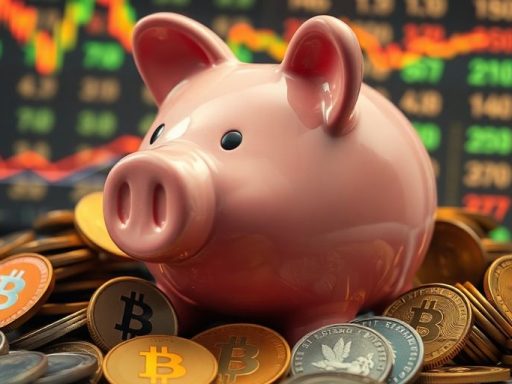The U.S. Securities and Exchange Commission (SEC) has made a landmark decision by declaring that memecoins are not classified as securities. This ruling is expected to significantly impact the cryptocurrency market, allowing traders to engage with these digital assets without the burden of regulatory constraints.
Key Takeaways
- The SEC has officially stated that memecoins do not qualify as securities under U.S. federal law.
- This decision allows for greater trading freedom without the need for registration with the SEC.
- Memecoins are characterized by their speculative nature, driven by market sentiment rather than traditional investment structures.
- The ruling reflects a broader shift in the SEC’s approach to cryptocurrency regulation.
Understanding Memecoins
Memecoins are a unique category of cryptocurrency that often originate from internet culture and memes. Unlike traditional cryptocurrencies like Bitcoin or Ethereum, which are built with specific technological purposes, memecoins typically lack serious utility and are created primarily for entertainment or community engagement.
Some of the most popular memecoins include:
- Dogecoin (DOGE)
- Shiba Inu (SHIB)
- Pepe
- Bonk
- Floki
These coins have gained traction due to their viral marketing and community-driven support, often leading to significant price fluctuations based on social media trends.
SEC’s Rationale
In its recent announcement, the SEC clarified that transactions involving memecoins do not constitute an investment in an enterprise. This means that buyers are not pooling their resources into a project managed by developers or third parties. Instead, the value of memecoins is largely determined by market speculation and collective sentiment, similar to collectibles.
The SEC’s statement emphasized that:
- Memecoins have limited or no practical use.
- They do not generate yields or confer rights to profits or assets.
- Buyers do not rely on the efforts of others to increase the coin’s value.
Implications for Traders
This ruling is a significant win for the crypto community, as it removes many regulatory hurdles that previously restricted trading activities. Traders can now buy and sell memecoins without the need for SEC registration, which could lead to increased market participation and liquidity.
However, it is essential for investors to understand that while this decision provides more freedom, it also comes with risks. Since memecoins are not protected under federal securities laws, holders may not have the same legal safeguards as traditional investors.
A Shift in Regulatory Attitude
The SEC’s decision comes amid a broader shift in its approach to cryptocurrency regulation, particularly following recent political changes. The agency has shown a willingness to ease restrictions, as evidenced by its dismissal of lawsuits against major crypto platforms and a more lenient stance on various crypto assets.
This evolving regulatory landscape suggests that the SEC may continue to adopt a more favorable view of cryptocurrencies, particularly as they gain mainstream acceptance.
Conclusion
The SEC’s declaration that memecoins are not securities marks a pivotal moment in the cryptocurrency market. By allowing greater trading freedom, the SEC is fostering an environment where innovation and community engagement can thrive. However, traders should remain vigilant and informed about the inherent risks associated with investing in these volatile assets.








